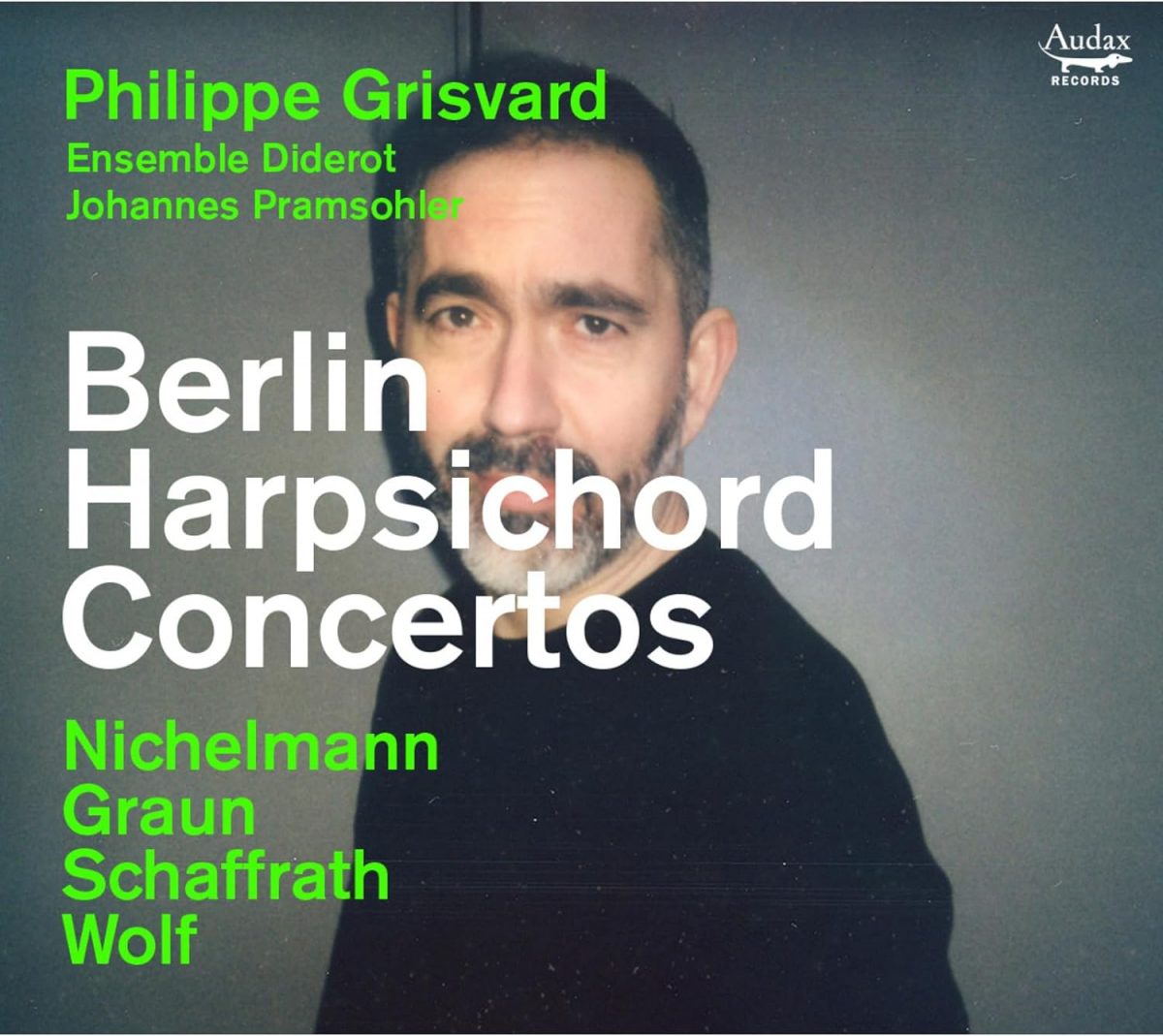Philippe Grisvard, Ensemble Diderot, Johannes Pramsohler
77:45
Audax Records ADX11211
This is a welcome recording of some unjustly neglected music. Great composers cast long shadows and, in this case, those who overlapped with J.S. Bach and his son C.P.E. have not always had much of a look in. Grisvard and the Ensemble Diderot make an impressive start at remedying that situation with this recording of concertos by four composers who had strong connections to the Berlin court of Frederick the Great. They have deliberately avoided C.P.E. Bach in favour of introducing music by his near contemporaries. Peter Wollny’s very informative sleeve notes give short biographies and provide the context for the music. Christoph Nichelmann, Carl Heinrich Graun and Christoph Schaffrath were close contemporaries of C.P.E.; Ernst Wilhelm Wolf was twenty years younger. Nichelmann was a pupil in the Leipzig Thomasschule in the early 1730s and later served as second harpsichordist in Berlin for a time, until a personality clash with C.P.E. led to him leaving that court. Graun is mainly known for his operas and a Passion composed for Berlin. Schaffrath worked for Frederick as crown prince, and later for his sister Anna Amalia. Wolf did not actually work in Berlin – he served in Leipzig and Weimar – but came under the Prussian capital’s musical influence through the mediation of Georg Benda.
The music draws clear inspiration from both Bachs, with a strong sense of Sturm und Drang clear from the first movement of Nichelmann’s D minor concerto which opens the disc. Schaffrath’s first movement is a muscular fugue in C minor, starting in the strings but later developed in an extended solo passage by the keyboard. Ritornello form predominates throughout these works, with extended solo passages for harpsichord, especially so in Wolf’s somewhat later concerto. The dialogue between soloist and strings is greatly assisted by the recording engineers, who have produced an excellent balance. Although there are only five string players, their playing and the recording quality tricks the ear into thinking that there are several more players in ripieno passages. Grisvard plays on a Mietke copy by Christoph Kern which has a full rich sound and good registrational capabilities. Cadenzas survive for the Nichelmann and Schaffrath works; Grisvard has developed his own for the other two which sound entirely idiomatic. His playing throughout is both confident and nuanced, showing a real understanding of the style of this transitional period, with its predictabilities and idiosyncrasies. This comes across as very attractive music, played with energy and plenty of forward drive. These performances really whet the appetite for more of this music and the recording can be highly recommended.
Noel O’Regan
